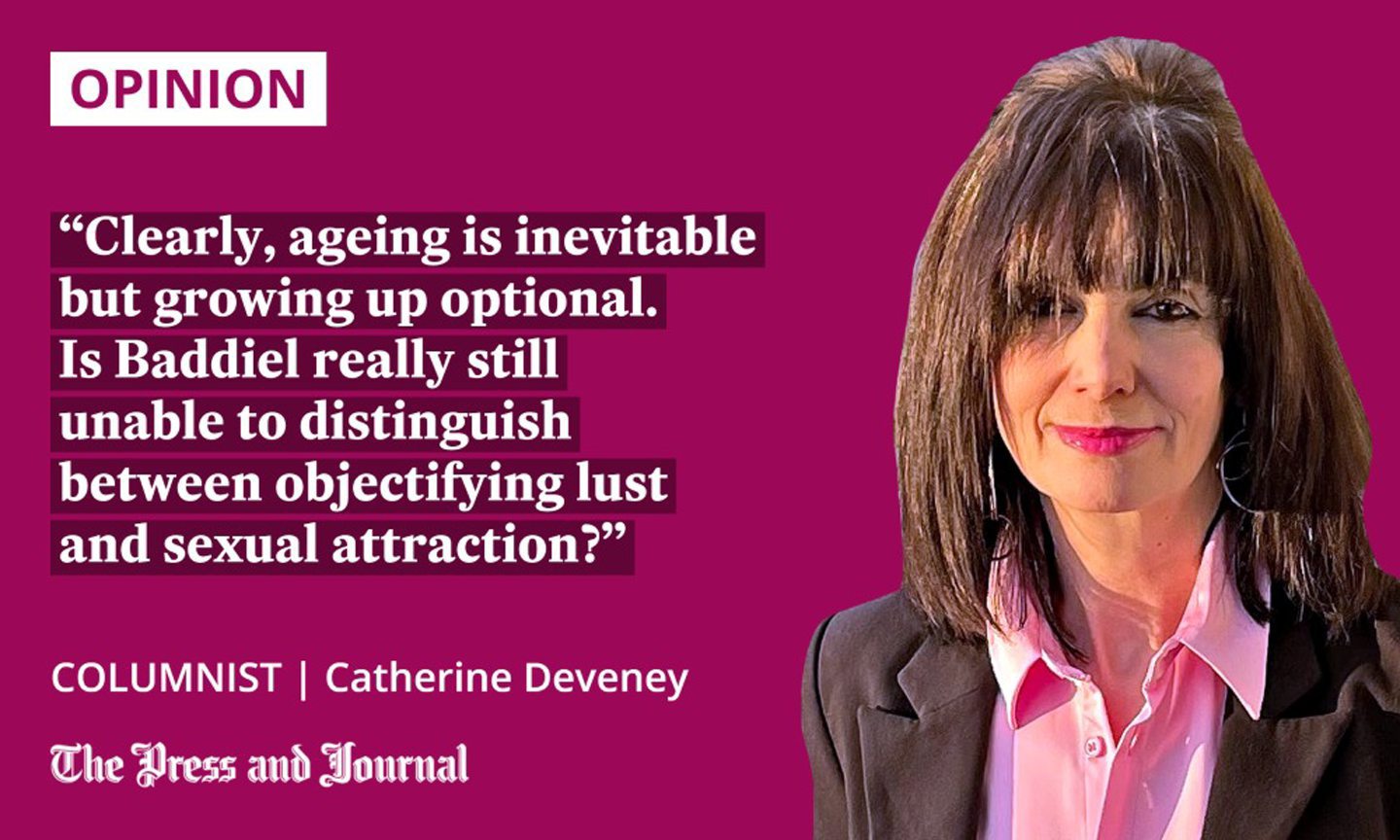I await with bated breath the next instalment of what must surely develop into a series in The Times newspaper.
It kicked off last week with a front page splash on David Baddiel: “What I Think When I Look at Women”. This obviously has endless scope. “What I think when I look at dogs/cats/people from China/albinos/adults identifying as non-binary in their gender identity (that one may need a little work), or even garden gnomes”.
Hmm, some of that didn’t sound so good. Fine if it’s just women – obviously – but the China one might sound racist, the albino one prurient, the non-binary one transphobic… Still, some people claim Baddiel is a comedian, so I’m sure it will all be very funny indeed.
Here’s my contribution to the series. “What I Think When I Look at Patronising, Pseudo-intellectual Men Trying To Justify Their Crass Sense of Entitlement”. (Working title.)
First, the semi-positive. London’s mayor, Sadiq Khan, has launched an anti-misogyny campaign involving videos of blokey blokes behaving badly, during which other blokes look uncomfortable before saying: “Maaate”. (In case you’re wondering, the elongated vowel is an indication of disappointed reproach.)

Khan wants all men to say this if friends are derogatory about women. He gets an A for effort but, when it comes to method… Oh, mate. (The lack of elongated vowel there, dear reader, is to signify a tone of desperate bewilderment that does not see any reason to prolong said bewilderment.)
Baddiel’s argument is that men can objectify women while simultaneously admiring their minds. (Hang on a minute. I thought men couldn’t multitask?) Instead of saying “maaate”, Baddiel’s (male) interviewer dubs him “witty and wise”.
“Men can,” Baddiel opines, “for essentially libidinous purposes, imagine and see women in this way, while not denying their basic humanity.” Oh, Daaavid! I’m a human being? You say the nicest things, mate.
This amazing ability to recognise female minds AND bodies is why, Baddiel has “always been open about using porn”. Forgive me, but I have been here before.
Baddiel has kept up with his ‘porn rota’
One of the testiest interviews I ever did was with Baddiel and his comedy partner, Frank Skinner, who described their “porn rota” when sharing a flat. Here’s how the interview started:
“You know that scene when two little boys are bonding? Their heads are bent together as they surreptitiously fill balloons with water or slowly remove the legs from some hapless spider, and all you can hear is furtive whispering and giggling. They create their own little world, and everything is so, so funny and they are quite the most amusing little boys on the planet.
“If anyone speaks to them, they look sideways at one another and stifle their sniggers. How very silly everyone else is! It can be quite endearing with six-year-olds. Less endearing, I find, with men over 40. And so to Frank Skinner and David Baddiel…”
Clearly, ageing is inevitable but growing up optional. Is Baddiel really still unable to distinguish between objectifying lust and sexual attraction? (For your homework, David, watch Mayor Khan’s video. This provides some clues.)
Pornography is essentially exploitative – and let’s not bother rehashing that old chestnut about economic choice. Sex workers I interviewed were predominantly addicts whose desperation led to making a buck in a system offering few alternatives. Then there’s the human trafficking involved.
The industry relies on men like Baddiel who are willing to – as he calls it – “objectify” women. Men who count cost in terms of pennies in their pockets but not physically, emotionally or psychologically.
Gender equality is ‘greatest human rights challenge’
United Nations Secretary-General António Guterres says gender equality is “the unfinished business of our time, and the greatest human rights challenge in our world.” He’s right, but that recognition is rare.
This is not simply about the stifled Middle Eastern women who can’t work, or wear what they want, or travel without male permission. Nor only about rape rates in India or honour killings in Pakistan, or the lack of female education in Afghanistan. It’s about more subtle attitudes.
David Baddiel thinks objectification is fine because he simultaneously acknowledges women might have the credentials to be prime minister. Big of him
Sadiq Khan’s film shows cliched versions of working-class boys behaving badly and, yes, that’s a problem. Increasingly so. But so are middle-class versions of power and entitlement, displayed both in Baddiel’s attitude and the newspaper’s headline.
Baddiel thinks objectification is fine because he simultaneously acknowledges women might have the credentials to be prime minister. Big of him, but he doesn’t get that objectification often precludes the respect that might lead women to positions of power. And would a newspaper seriously run the headline: “What I Think When I look At Black People”?
Baddiel wants to write a book of essays called The Male Gaze, as if male gaze is a single, scientific “thing”. It’s not, any more than the female one is. It’s not based on fixed inevitables, but on chosen variables. Plenty of men would be horrified by Baddiel’s interpretation. So, to Baddiel, I say: maaate. To The Times, I say: maaate.
And how far, I wonder, is that ever going to get me?
Catherine Deveney is an award-winning investigative journalist, novelist and television presenter










